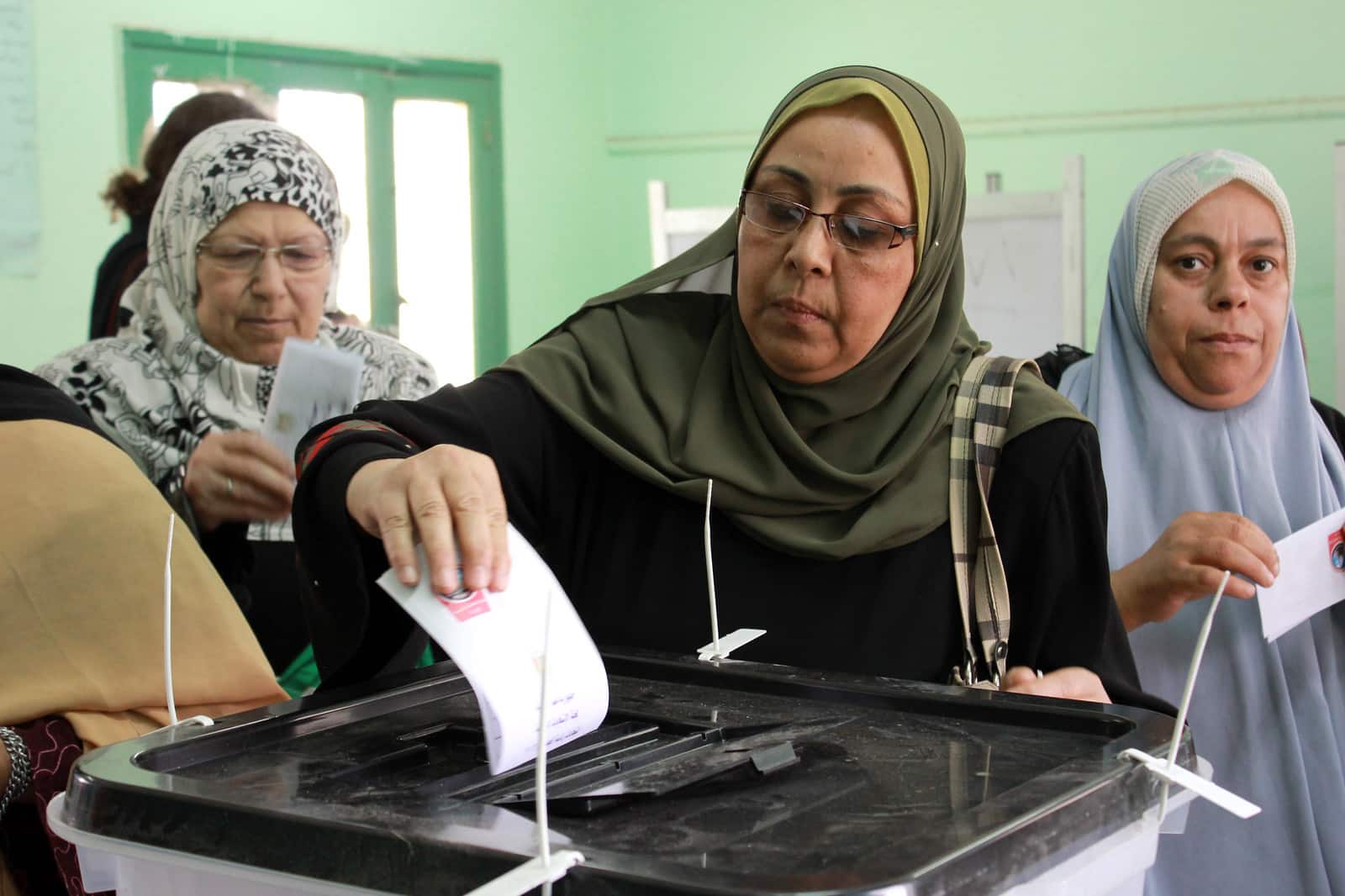Based on the National Elections Authority (NEA) announcement on the 19th of August, a pro-government coalition led by the Mostaqbal Watan Party has secured a landslide victory in Egypt’s Senate elections.
Election results
Citizens could cast their ballots abroad on the 9th and 10th of August and locally on the 11th and 12th of August to choose their representatives in the new chamber. The members of the Senate are selected via the individual candidacy, the closed party list system, and presidential appointment.
The vote is supposed to select 200 members (100 from a closed list that includes parties close to the regime and three opposition parties and 100 from individual lists), while the president will appoint the remaining 100. During the first round of elections, 174 senators have been chosen, and 26 seats will be assigned in September after the runoff elections.
About 11 political parties included in the National List for Egypt, gained seats in the Senate. The parties included: Nation’s Future Party, Homeland Defenders Party, Conference Party, Egyptian Social Democratic Party, Al-Wafd, Republican People’s Party, Egyptian Patriotic Movement, Modern Egypt Party, Reform and Development Party, National Progressive Unionist Party, Elhorya ElMasry party, Coordination of Parties Youth.
Election turnout
Based on the Middle East Eye reports, it can be concluded that the government used different strategies to influence voters. For instance, in some cities, microbus drivers were threatened by the police officers and officials to make themselves available to transport the voters; otherwise, they would receive fines and possibly lose their license. Additionally, Mohamed al-Masry, a coordinator of the Nation’s Future Party in Sohag, said that his party presented “gifts” to the “underprivileged people in the district to motivate them to participate.”
Following the closing of the polls, the General Committee overseeing the election in Dakahlia announced that the percentage of the voters was 7.53%. However, the National Election Authority reacted promptly warning the media not to publish any results or data related to the elections before the official announcement on the 19th of August.
Head of NEA Lashin Ibrahim said that 8.95 million out of 62.94 million eligible voters cast their ballots during the four-day long voting period, a total turnout of 14.23%. He added that 1.38 million votes were invalid.
Apathy dominates elections
The majority of the 762 candidates that were running in elections are supporters of Egyptian President Abdel Fattah al-Sisi and political opposition has been jailed or exiled. Additionally, constitutional amendments approved in April 2019 strengthened the power of Sisi, allowing him to remain in power until 2030. The Senate will also act only as an advisory chamber to the House of Representatives, without legislative powers. It was created following constitutional amendments approved last year, and it’s replacing Shura Council, an upper house of parliament that was dissolved in 2014.
The National Center for Social and Criminological Research survey on the Senate elections showed that 64% of those polled had not followed news of the Senate elections and that 83% did not know how many members will represent their constituencies. Majority of Egyptians believe that their vote won’t change anything and that there is no real competition between the candidates since Sisi holds all the power.
Position of the Egyptian Social Democratic Party
Farid Zahran, the head of the pro-opposition Egyptian Social Democratic Party, which participated in the elections, said “The low voter turnout in the Senate elections is because Egyptians were reluctant to vote as they believe the political elite have ruined political work and political parties and they feel frustrated as the democratic forces failed to achieve their demands of change following the 25th of January Revolution in 2011.”
The Egyptian Social Democratic party participated in the election on the unified list of the Nation’s Future Party including other pro-opposition parties such as the National Progressive Unionist Party, the Reform and Development Misruna Party. Zahran said they run in the elections alongside pro-government parties because they want to be able to express their vision and raise voice on the relevant issues.
However, their participation caused significant disagreement within the ranks of the Civil Democratic Movement, which decided to boycott the Senate elections. The Civil Democratic Movement was established in 2017 and called for building a civil democratic state and the release of political prisoners. The movement includes several liberal, leftist and opposition parties, including the Egyptian Social Democratic Party, as well as political figures opposed to the regime.
Law on redrawing parliament electoral districts
On the 18th of August, Egypt’s House of Representatives approved a new law on redrawing parliament electoral districts. Namely, Egypt will be divided into 143 electoral areas devoted to electing 284 MPs via the individual candidacy system, while the list system will be held in four electoral districts. The law also stipulates that 25% of seats be allocated to women representatives.
The draft law was submitted by Abdel Hadi Al-Qasabi, head of the Support Egypt Coalition, and 60 other members of parliament and it aims to pave the way for Egypt’s parliamentary elections to be held next November.
Source: Al-Monitor, Daily News Egypt, Egypt Today, Ahram Online, Reuters, Middle East Eye
Photo: Flickr



